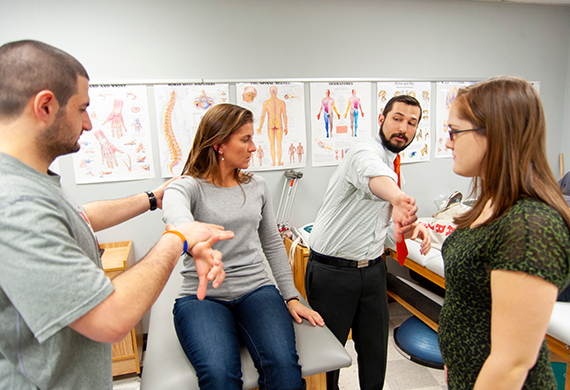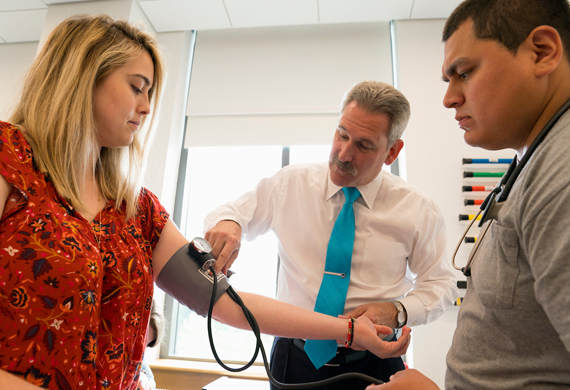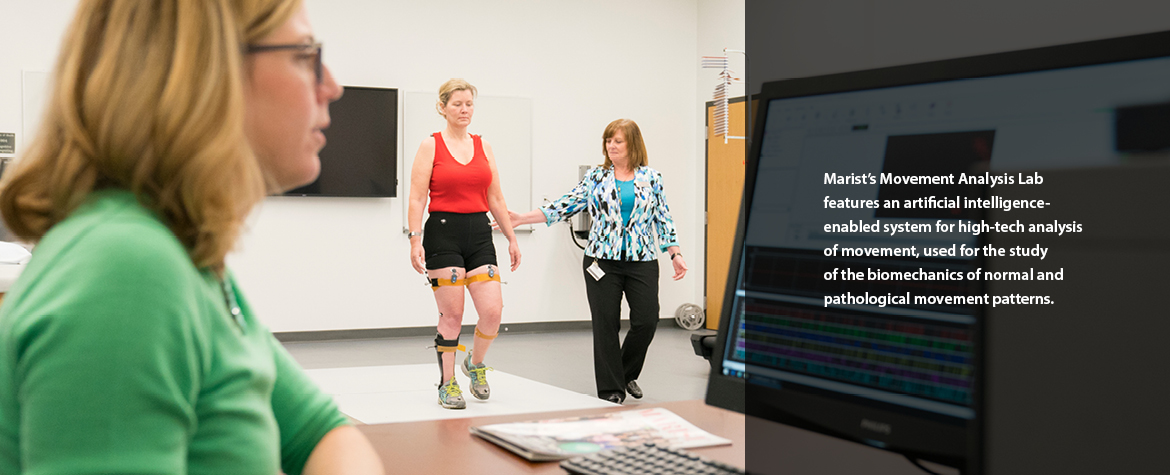-
About
Marist Commencement
Celebrating the Class of 2025
• The graduate ceremony will be held on Friday, May 23.
• The undergraduate ceremony will be held on Saturday, May 24.About
-
Academics
Marist Commencement
Celebrating the Class of 2025
• The graduate ceremony will be held on Friday, May 23.
• The undergraduate ceremony will be held on Saturday, May 24.Academics
-
Admission & Financial Aid
Marist Commencement
Celebrating the Class of 2025
• The graduate ceremony will be held on Friday, May 23.
• The undergraduate ceremony will be held on Saturday, May 24.Admission & Financial Aid
-
Student Life
Marist Commencement
Celebrating the Class of 2025
• The graduate ceremony will be held on Friday, May 23.
• The undergraduate ceremony will be held on Saturday, May 24.Student Life
- Athletics
An image of the Athletic Center
An image of a red background with the Marist seal
Prepare For Your Future in Athletic Training
Ready to join one of only nine programs, out of over 300 nationally, to achieve a 100% first-time pass rate on the national board exam for eight of the last nine years? With our success rate, rigorous curriculum, and high-tech facilities, you’ll be prepared for a very successful career in athletic training.
An image of a red background with the Marist seal
Prepare For Your Future in Athletic Training
Ready to join one of only nine programs, out of over 300 nationally, to achieve a 100% first-time pass rate on the national board exam for eight of the last nine years? With our success rate, rigorous curriculum, and high-tech facilities, you’ll be prepared for a very successful career in athletic training.
Master's Degree Transition Status
The Athletic Training Strategic Alliance (four leading organizations in the Athletic Training profession) announced their decision to require the professional degree in athletic training be obtained at the master's degree level. To remain in compliance with the CAATE, baccalaureate programs may not admit, enroll, or matriculate students into the athletic training program after the start of the fall term 2022. Thus, Marist is no longer accepting students into the Bachelor of Science in Athletic Training degree program. Students who entered Marist in Fall 2022 or earlier can still earn a Bachelor of Science in Athletic Training degree, and per CAATE standards are eligible for the national certification exam (BOC) upon graduation from the program.
Marist transitioned to the Master of Science in Athletic Training (MSAT) degree, as now required by the CAATE. At this juncture, we anticipate enrolling our first MSAT cohort in the summer of 2024. Students wanting to pursue a graduate degree in Athletic Training are encouraged to major in Biology with a Human Biology concentration.
Marist has developed two options for students pursuing a graduate degree in Athletic Training, a standalone 2-year Master of Science in Athletic Training (MSAT) program and an accelerated, combined 5-year BS/MSAT dual degree program that results in students earning both the Bachelor of Science in Biology and the MSAT.
For more information on the Master's in Athletic Training, click here.
Extensive Clinical Experience Develops Students for Careers in Athletic Training
In the Athletic Training program at Marist, we believe field experience is essential to career preparedness. That is why you’ll complete nine clinical rotations and have over 900 hours of clinical experience by the time you graduate. With a variety of high schools, colleges, and sport and physical therapy centers, as well as our own Sports Medicine Facility working with full-time certified athletic trainers, we’ll work with you to ensure that the experience you receive is best suited to your future goals in athletic training.
State-of-the-Art Athletic Training Facilities
Along with the extensive clinical experience you’ll receive in Marist’s program, you’ll also have access to some of the top technology in sports medicine. This includes top-of-the-line lab space like our gross anatomy lab and research labs, as well as our cutting-edge Movement Analysis Lab, which is one of only three in the tri-state area. With multiple facilities at your disposal, including the McCann Recreation Center, Marist Athletic Training Facility, and Science and Allied Health Building, the campus is bursting with opportunities for hands-on Athletic Training experience.

Admission and Tuition
Admission into the Athletic Training Program at Marist requires secondary application process beyond the traditional undergraduate application to Marist. Retention within the program also requires our students to meet certain academic criteria.
Learn About Admission and Retention >
The Cost of Attendance of the program includes tuition and fees, room and board, books and supplies, personal and transportation expenses, and loan fees, as well as dress code costs.
Learn About Tuition and Costs >
Tile M grey background
Build a Foundation to Expand Your Training
After completing your four-year degree in Athletic Training, you’ll also have the opportunity to continue your education in the field right here at Marist with our Doctor of Physical Therapy program. Fully accredited by the Commission on Accreditation in Physical Therapy Education (CAPTE), you’ll learn from experts in the field, work with cutting-edge technology, and further prepare yourself for success in Physical Therapy.
Marist Athletic Training by the Numbers

Marist Athletic Training is one of only nine programs, out of over 300 programs nationally, to achieve a 100% first time pass rate on the national board exam for eight of the last nine years.

According to the Bureau of Labor Statistics, the employment of athletic trainers is projected to grow 16 percent from 2019 to 2029, much faster than the average for all occupations.

The New York-New Jersey-Pennsylvania metropolitan area is the highest employment area for athletic trainers.
Image of students walking in front of the rotunda.
The Value of a Marist Education
At Marist, we pride ourselves on our dedication to providing our students with a well-rounded liberal arts education that prepares them for practical experience and profound success in their field. But don't just take our word for it - the numbers speak for themselves.

Employed or attending grad school 6 months after graduation

Of Marist Graduates Participated in one or more internships

Graduation rate, higher than the average for public and private colleges

Best Undergraduate Teaching
*As reported by U.S. News and World Report.

Top 10 Regional Universities-North



